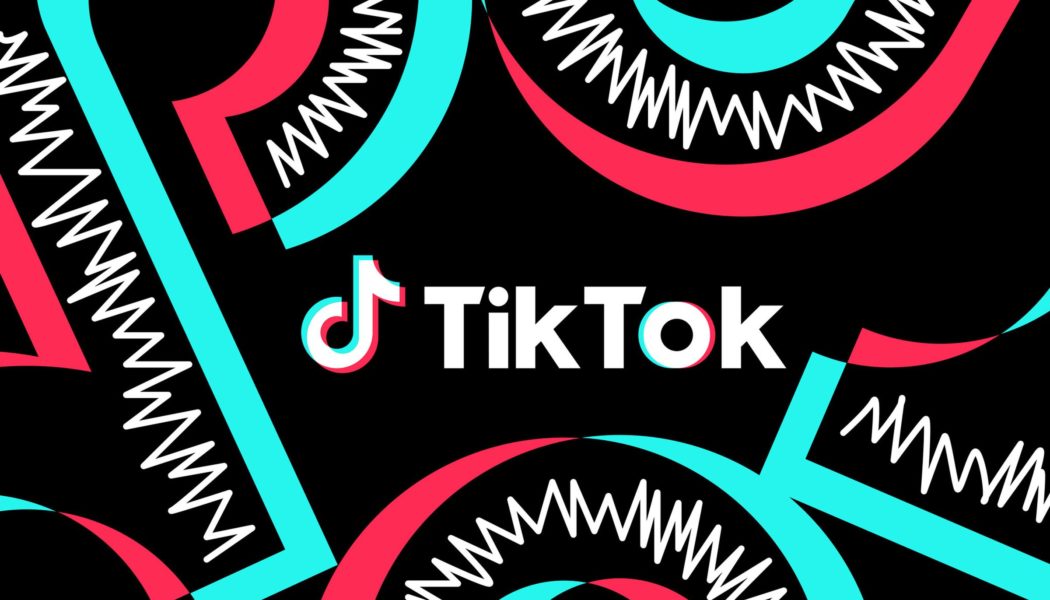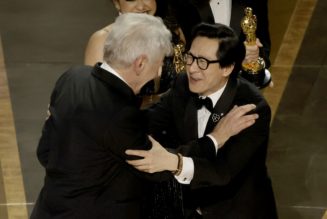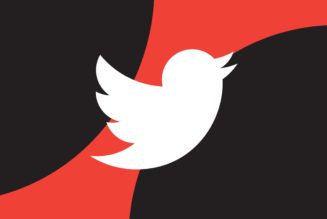After a rocky appearance before Congress, the company has reason to reflect

On Thursday morning, the chief executive of what is perhaps the world’s most popular social app went before Congress. Like so many social media CEOs before him, Shou Zi Chew’s mission was to persuade skeptical lawmakers that his company, TikTok, operates responsibly and within the bounds of the law. In the face of doubts and outright hostility, Chew would have to remain calm and genial, attempting to make his case while in the straitjacket of Congress’ hearing format: an hours-long series of mostly yes-or-no questions, his answers preempted by most lawmakers before he could begin a second sentence.
It is a ritual previously endured by Mark Zuckerberg, Sheryl Sandberg, Sundar Pichai, and Jack Dorsey, among others. And while each of them faced withering questions, in the end withering questions is all that Congress really gave them. Hearings like these are often framed as a precursor to stringent regulation, but in the United States they are a substitute for them. Congress yells at social media companies — posting clips of their sickest burns on the very companies they criticize — and then fails to pass a single piece of legislation.
TikTok’s hearing might have gone this way, too, were it not for one overarching, bipartisan concern: that the company’s owner, ByteDance, might be forced by the Chinese government to surveil Americans or seek to influence them by promoting pro-China or anti-US content.
It’s for that reason that the Biden administration, like the Trump administration before it, now seeks to force ByteDance to divest the app. That’s an outcome that Chew is determined to avoid, he told lawmakers Thursday.
“Divestment doesn’t address the fundamental concerns that I have heard, as a change in ownership would not impose any new restrictions on data flows or access,” Chew said in his prepared testimony before the House Energy and Commerce Committee. “This is not an issue of nationality. All global companies face common challenges that need to be addressed through safeguards and transparency.”
Chew is right that national privacy legislation would do more to protect against the misuse of Americans’ data than divestment or a ban. But there is a fundamental concern that either outcome would address: its Chinese ownership.
And while they are far apart on most issues, most Democrats and Republicans at today’s marathon hearing agreed: Chinese ownership of TikTok is untenable.
“I still believe that the Beijing, Communist government will still control and influence what you do,” said Rep. Frank Pallone Jr. (D-NJ). The company’s proposed solution, the data-silo initiative it calls Project Texas, “is simply not acceptable,” he said.
What happens next is anyone’s guess. The Biden administration seems likely to attempt to force divestiture. China said Thursday that it will strongly oppose such a move and would prevent ByteDance from spinning out TikTok.
That leaves the prospect of a ban, which is in uncertain territory legally. When the Trump administration tried to force a sale, it was blocked by the courts — and experts say the Biden administration is likely to run into the same issues. The Washington Post reported today that the administration believes that Congress would need to pass a law to make an actual ban possible.
It would be remarkable if the first meaningful piece of federal tech regulation passed in years was a bill that eliminated TikTok outright. And yet observers of today’s hearing tended to agree that it seems likelier than it did before Chew’s five hours on the stand, during which he was pummeled by lawmakers of both parties for problems both real and fictional.
“Shou came prepared to answer questions from Congress, but, unfortunately, the day was dominated by political grandstanding that failed to acknowledge the real solutions already underway through Project Texas or productively address industry-wide issues of youth safety,” TikTok told me in a statement afterward. “Also not mentioned today by members of the Committee: the livelihoods of the 5 million businesses on TikTok or the First Amendment implications of banning a platform loved by 150 million Americans.”
I’m sympathetic to those concerns, as I wrote here last week. But it also seems to me that TikTok made several tactical errors alongside the original sin (in Congress’ eyes) of being developed in China. And there may be lessons for the next generation of big consumer apps, who will begin with global ambitions but quickly find themselves faced with similar skepticism from lawmakers and regulators around the world.
Incidentally, I don’t see this as merely a case of what China-based apps should learn about launching in the United States. The same underlying logic in this case could well lead to an American app being banned in India, for example.
So what went wrong for ByteDance and TikTok?
First, it’s important to say again that ByteDance really did have a bad hand to play here. Lawmakers have asked the company to prove a negative — that no one’s data is being misused, and no one is being unduly influenced. Neither the company nor outside investigators have found much evidence of either (emphasis on much). But the looming specter that something can or will go wrong in the future has been extremely difficult for TikTok to overcome.
Second, it gave its worst critics powerful ammunition. Amid what once seemed like paranoid fears of surveillance, it surveilled American journalists. Among similar concerns about how TikTok could be used to spread propaganda, ByteDance reportedly pushed pro-China messaging in a now-defunct US news app.
ByteDance has said the former case was a case of overreach by its security team, and denied the latter. But in cases where the company truly needed a spotless record, Emily Baker-White’s reporting suggested that there was something to be afraid of here after all.
Three, when it came to China, TikTok always stayed in kayfabe. Pardon my use of a term from pro wrestling here, but it’s the only one that fits. In wrestling, kayfabe is the agreed-upon reality that enables spectators to suspend their disbelief while watching events with scripted outcomes. For TikTok, kayfabe was the system that forced executives to say with a straight face that they have meaningful independence from ByteDance and would never agree to share data with the Chinese state.
Here’s what Chew told lawmakers on that subject today:
I understand that there are concerns stemming from the inaccurate belief that TikTok’s corporate structure makes it beholden to the Chinese government or that it shares information about U.S. users with the Chinese government. This is emphatically untrue. TikTok is led by an executive team in the United States and Singapore and has global offices, including in Los Angeles, Silicon Valley, Nashville, New York, Washington, DC, Dublin, London, Paris, Berlin, Dubai, Singapore, Jakarta, Seoul, and Tokyo. Our headquarters are in Los Angeles and Singapore. TikTok is not available in mainland China.
In kayfabe, then, TikTok is an independent app that is not “beholden to the Chinese government.” And in reality, here’s what a spokeswoman for China’s Commerce Ministry said about the possibility of forced divestiture: “If the news is true, China will firmly oppose it.”
As this whole drama has unfolded, I have been waiting for the moment when someone at TikTok would level with us — would say yes, China does make various demands of our parent company, and decides our future, and this is awkward but we are doing our best to address it in these ways.
The fact that no one there ever said that gave the strong impression that they couldn’t say that — and in a low-trust environment, that sort of thing breeds suspicions that are difficult to overcome.
Of course, had Chew dared to acknowledged China’s power, that also could have roiled US lawmakers. (To say nothing of the Chinese state, which all but chased ByteDance founder Zhang Yiming into hiding in 2021 for reasons that were never fully explained.) But at the very least it would have allowed for a more honest discussion.
Four, TikTok really reckoned with the fact that ranked feeds often make people feel uneasy, or even bad. In fairness, none of the social companies have figured out a solution to this problem. But I think it dampened support for TikTok broadly, and it’s a reason we haven’t seen users marching in the streets to oppose a ban. (At least not yet.)
Here’s a statistic that helps capture that. In a recent Post survey, 17 percent of daily TikTok users — nearly one in five — said they would support a ban. For people who use the app at least monthly, support for a ban came in at 21 percent. How else to explain that, if not a deep concern that using the app so much is not good for us?
TikTok does appear to be waking up to this problem — it added a dedicated feed of science and math videos, just in time for Chew to promote it to lawmakers today. But that basic unease persists. And so users sit on their hands, even as the prospect of other apps being banned has triggered protests around the world. (Uber, another app that is at perpetual risk of being banned, does a better job getting drivers and riders to take to the streets.)
Finally, TikTok never really got older people to use it. In particular, it struggled to get members of Congress to use it. The Post reported that just one member of today’s committee — Rep. Tony Cárdenas (D-CA) — has an active, verified TikTok account. (Two others appear to have deleted theirs.)
It’s easy to ban an app you never use, particularly when you can do it in the name of national security. I suspect that were Facebook or Twitter owned by a Chinese company, Congress would feel much more motivated to find a solution that let them continuing to use their accounts for promotion and fundraising.
We still don’t know what TikTok’s final disposition could be. It seems possible that it could outlast the Biden administration through the sheer force of inertia, just as it outlasted Trump. But if this indeed proves to be the moment Congress comes together to regulate a big tech platform, TikTok’s days may be truly numbered. And while it may be the case that nothing could have saved a China-based app in a moment like this, it’s also true that, in some important ways, TikTok brought all this on itself.









